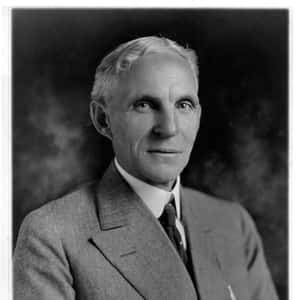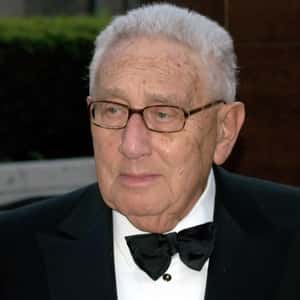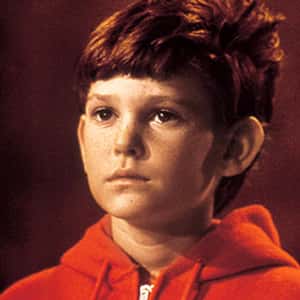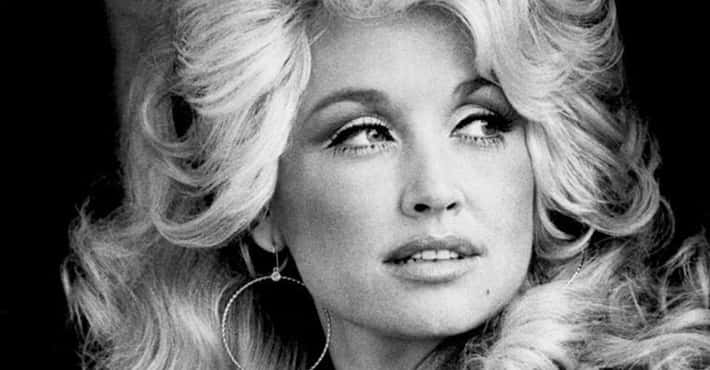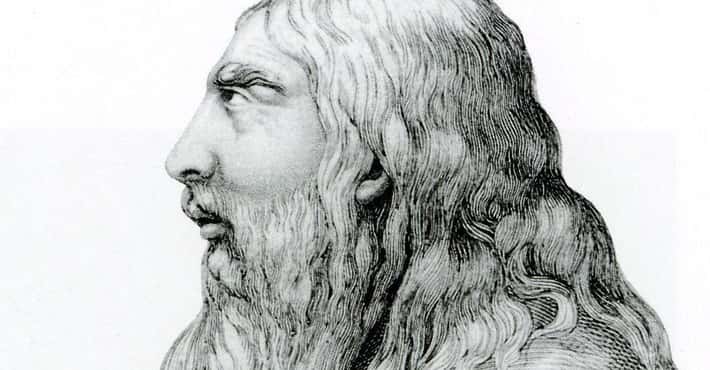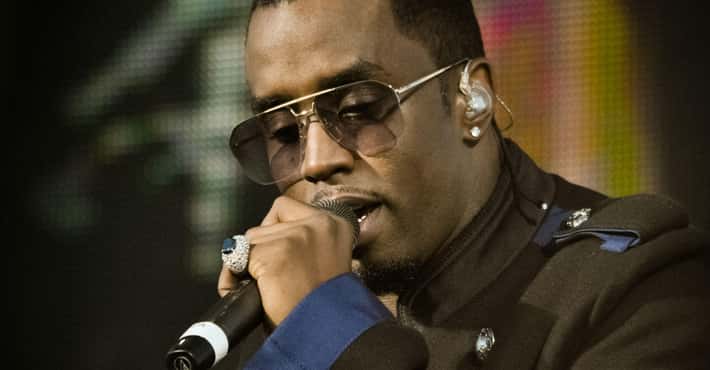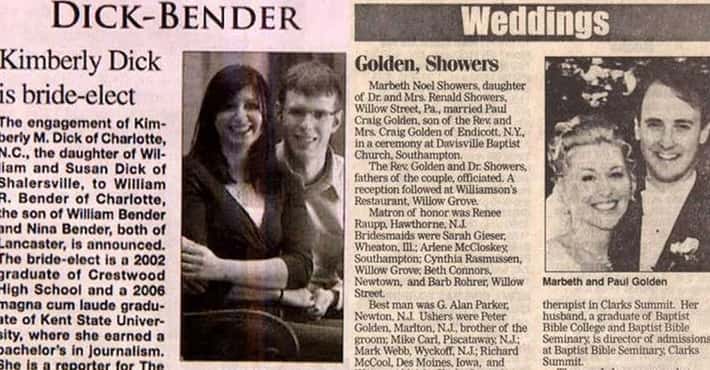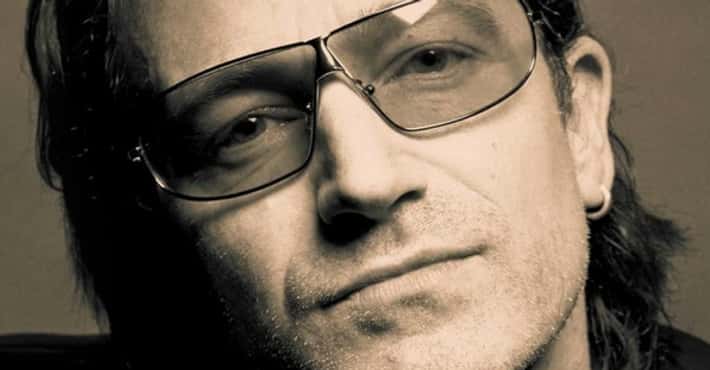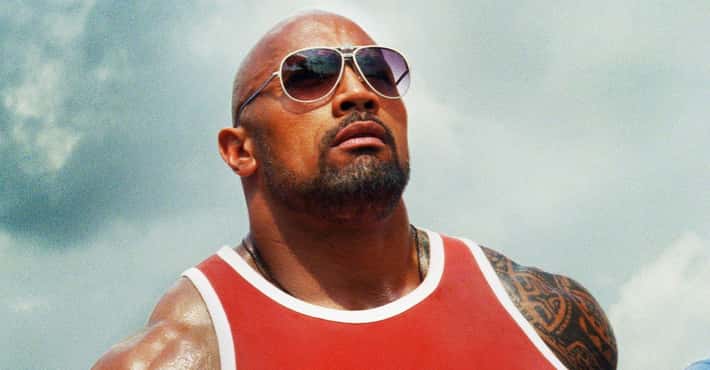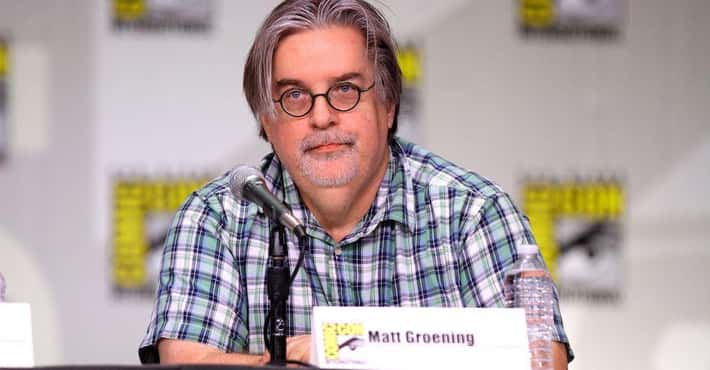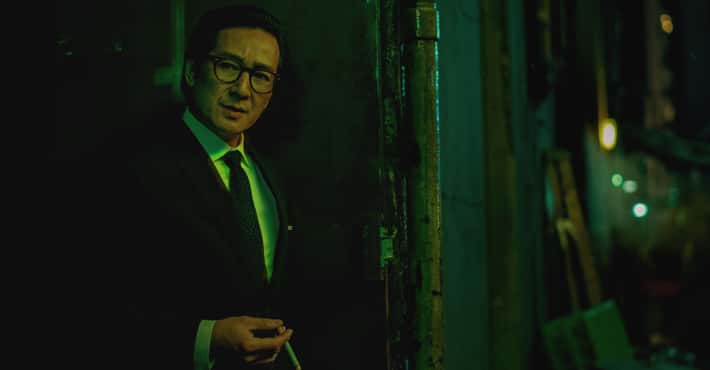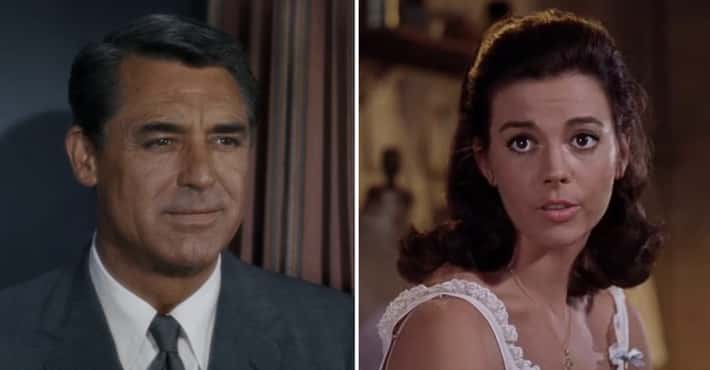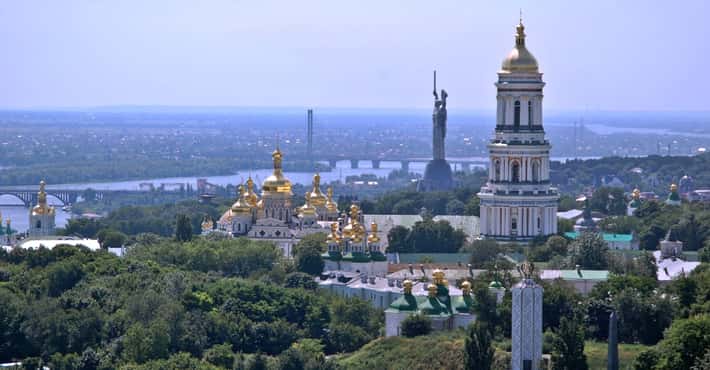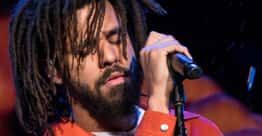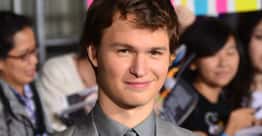Who Is The Most Famous Henry In The World?
Ranked By
677 votes
280 voters
Voting Rules
Vote up all of the famous Henrys you've heard of.
- 02/05/1934Henry Louis Aaron (February 5, 1934 – January 22, 2021), nicknamed "Hammer" or "Hammerin' Hank," was an American Major League Baseball (MLB) right fielder who served as the senior vice president of the Atlanta Braves. He played 21 seasons for the Milwaukee/Atlanta Braves in the National League (NL) and two seasons for the Milwaukee Brewers in the American League (AL), from 1954 through 1976. Aaron held the MLB record for career home runs for 33 years, and he still holds several MLB offensive records. He hit 24 or more home runs every year from 1955 through 1973, and is one of only two players to hit 30 or more home runs in a season at least fifteen times. In 1999, The Sporting News ranked Aaron fifth on its "100 Greatest Baseball Players" list.Aaron was born and raised in and around Mobile, Alabama. Aaron had seven siblings, including Tommie Aaron, who later played in MLB with him.More Hank Aaron
- Dig Deeper...Longest Hitting Streaks in Baseball
- #1 of 388 onThe Greatest Baseball Players Of All Time
- #5 of 372 onThe Best Hitters in Baseball History
- 05/05/1983Henry Cavill, a British actor best known for his performance as Superman in the DC Extended Universe series, has carved a niche for himself in the world of acting with his charming and charismatic portrayals. Born on the island of Jersey in the Channel Islands on May 5, 1983, Cavill was educated at St. Michael's Preparatory School in Saint Saviour, Jersey, then attended Stowe School in Buckinghamshire, England. His acting journey began in school when he landed a role in Shakespeare's A Midsummer Night's Dream, which ignited his passion for the performing arts. Cavill's career took off when he secured a role in The Count of Monte Cristo in 2002. He made his breakthrough in 2007 when he was cast in the Showtime series The Tudors, playing Charles Brandon, 1st Duke of Suffolk. This role brought him international recognition and paved the way for more significant opportunities. In 2013, Cavill stepped into the shoes of the iconic superhero, Superman, in Zack Snyder's Man of Steel. His portrayal received widespread acclaim, and he reprised the role in subsequent films like Batman v Superman: Dawn of Justice and Justice League. Apart from his work in the DC Extended Universe, Cavill has showcased his versatility by taking on different genres. He starred in the 2015 action spy film The Man from U.N.C.L.E. and in the 2018 action thriller Mission: Impossible - Fallout. In 2019, he began playing Geralt of Rivia in the Netflix fantasy series The Witcher, a role that has further cemented his status as a leading man in the industry.More Henry Cavill
- Dig Deeper...Ways Henry Cavill Bewitched The Internet's Heart
- And Deeper...335+ Famous Taurus Historical Figures
- #297 of 574 onThe Best Actors In Film History
- 07/30/1863Henry Ford (July 30, 1863 – April 7, 1947) was an American industrialist and a business magnate, the founder of the Ford Motor Company, and the sponsor of the development of the assembly line technique of mass production. Although Ford did not invent the automobile or the assembly line, he developed and manufactured the first automobile that many middle-class Americans could afford. In doing so, Ford converted the automobile from an expensive curiosity into a practical conveyance that would profoundly impact the landscape of the 20th century. His introduction of the Model T automobile revolutionized transportation and American industry. As the owner of the Ford Motor Company, he became one of the richest and best-known people in the world. He is credited with "Fordism": mass production of inexpensive goods coupled with high wages for workers. Ford had a global vision, with consumerism as the key to peace. His intense commitment to systematically lowering costs resulted in many technical and business innovations, including a franchise system that put dealerships throughout most of North America and in major cities on six continents. Ford left most of his vast wealth to the Ford Foundation and arranged for his family to control the company permanently. Ford was also widely known for his pacifism during the first years of World War I, and for promoting antisemitic content, including The Protocols of the Elders of Zion, through his newspaper The Dearborn Independent and the book The International Jew, having an influence on the development of Nazism and Adolf Hitler.More Henry Ford
- Dig Deeper...320 Famous Leo Celebrities
- #166 of 752 onThe Greatest Minds of All Time
- #165 of 559 on500+ People We Wish Were Still Alive
- 06/28/1491Henry VIII (28 June 1491 – 28 January 1547) was King of England from 1509 until his death in 1547. He was the second Tudor monarch, succeeding his father Henry VII. Henry is best known for his six marriages, in particular his efforts to have his first marriage (to Catherine of Aragon) annulled. His disagreement with the Pope on the question of such an annulment led Henry to initiate the English Reformation, separating the Church of England from papal authority. He appointed himself the Supreme Head of the Church of England and dissolved convents and monasteries, for which he was excommunicated. Henry is also known as "the father of the Royal Navy"; he invested heavily in the Navy, increasing its size greatly from a few to more than 50 ships. Domestically, Henry is known for his radical changes to the English Constitution, ushering in the theory of the divine right of kings. He also greatly expanded royal power during his reign. He frequently used charges of treason and heresy to quell dissent, and those accused were often executed without a formal trial by means of bills of attainder. He achieved many of his political aims through the work of his chief ministers, some of whom were banished or executed when they fell out of his favour. Thomas Wolsey, Thomas More, Thomas Cromwell, Richard Rich, and Thomas Cranmer all figured prominently in his administration. Henry was an extravagant spender, using the proceeds from the dissolution of the monasteries and acts of the Reformation Parliament. He also converted the money that was formerly paid to Rome into royal revenue. Despite the money from these sources, he was continually on the verge of financial ruin due to his personal extravagance, as well as his numerous costly and largely unsuccessful continental wars, particularly with King Francis I of France and Holy Roman Emperor Charles V. At home, he oversaw the legal union of England and Wales with the Laws in Wales Acts 1535 and 1542, and he was the first English monarch to rule as King of Ireland following the Crown of Ireland Act 1542. Henry's contemporaries considered him an attractive, educated, and accomplished king. He has been described as "one of the most charismatic rulers to sit on the English throne". He was an author and composer. As he aged, however, he became severely obese and his health suffered, contributing to his death in 1547. He is frequently characterised in his later life as a lustful, egotistical, harsh, and insecure king. He was succeeded by his son Edward VI.
- 07/12/1817Henry David Thoreau (see name pronunciation; July 12, 1817 – May 6, 1862) was an American essayist, poet, and philosopher. A leading transcendentalist, Thoreau is best known for his book Walden, a reflection upon simple living in natural surroundings, and his essay "Civil Disobedience" (originally published as "Resistance to Civil Government"), an argument for disobedience to an unjust state. Thoreau's books, articles, essays, journals, and poetry amount to more than 20 volumes. Among his lasting contributions are his writings on natural history and philosophy, in which he anticipated the methods and findings of ecology and environmental history, two sources of modern-day environmentalism. His literary style interweaves close observation of nature, personal experience, pointed rhetoric, symbolic meanings, and historical lore, while displaying a poetic sensibility, philosophical austerity, and Yankee attention to practical detail. He was also deeply interested in the idea of survival in the face of hostile elements, historical change, and natural decay; at the same time he advocated abandoning waste and illusion in order to discover life's true essential needs.He was a lifelong abolitionist, delivering lectures that attacked the Fugitive Slave Law while praising the writings of Wendell Phillips and defending the abolitionist John Brown. Thoreau's philosophy of civil disobedience later influenced the political thoughts and actions of such notable figures as Leo Tolstoy, Mahatma Gandhi, and Martin Luther King Jr.Thoreau is sometimes referred to as an anarchist. Though "Civil Disobedience" seems to call for improving rather than abolishing government—"I ask for, not at once no government, but at once a better government"—the direction of this improvement contrarily points toward anarchism: "'That government is best which governs not at all;' and when men are prepared for it, that will be the kind of government which they will have."More Henry David Thoreau
- Dig Deeper...345 Famous Cancer Celebrities
- #86 of 508 onThe 500+ Best Writers of All Time
- #143 of 752 onThe Greatest Minds of All Time
- 10/30/1945Henry Winkler, an award-winning actor, producer, and director, was born on October 30, 1945, in Manhattan, New York City. The son of German-Jewish immigrants, Winkler overcame his struggles with dyslexia to graduate from Emerson College in 1967 and the Yale School of Drama in 1970. His journey into the entertainment industry began with a series of minor roles in television and films before he found fame portraying Arthur "Fonzie" Fonzarelli in the American sitcom Happy Days (1974-1984). Known for his leather jacket and cool demeanor, Fonzie became one of TV's most beloved characters, earning Winkler two Golden Globe Awards and three Emmy nominations. Winkler's career trajectory did not plateau post-Happy Days. Instead, he expanded his repertoire to include producing and directing. Winkler co-founded the production company Fair Dinkum Productions, which produced successful television shows such as MacGyver and Sightings. He also directed numerous episodes of Sabrina the Teenage Witch, showcasing his versatility behind the scenes. Winkler's acting career continued to flourish as well, with notable performances in series such as Arrested Development and Barry, the latter of which won him his first Primetime Emmy Award in 2018. Outside of his prolific career in entertainment, Winkler is also an accomplished author. Alongside co-author Lin Oliver, Winkler has penned a series of children's novels called Hank Zipzer: The World's Greatest Underachiever. The series, inspired by Winkler's personal experiences with dyslexia, aims to encourage and empower children facing similar challenges. In recognition of his contribution to the arts and his advocacy for dyslexia awareness, Winkler was appointed an Honorary Officer of the Order of the British Empire (OBE) in 2011.More Henry Winkler
- #30 of 227 onThe Most Trustworthy Celebrities In The World
- #254 of 574 onThe Best Actors In Film History
- #94 of 158 onThe Best Living American Actors
- 05/16/1905Henry Fonda, a titan of American cinema, was born on May 16, 1905, in Grand Island, Nebraska. His journey from the heartland to Hollywood is an embodiment of the American dream. He grew up in a close-knit family with his parents and two siblings. Despite his humble beginnings, he was always drawn to the world of performing arts. This passion led him to leave home at the age of 20 to join a small theatre company in Omaha, marking the beginning of his illustrious career. Fonda's breakthrough came when he moved to New York in 1928 and started performing on Broadway. His performance in the 1934 play, The Farmer Takes a Wife, caught the attention of Hollywood producers. The same year, he made his silver screen debut with the film adaptation of the play. His portrayal of honest, strong-willed, everyman characters resonated with audiences, leading to roles in classics like The Grapes of Wrath and 12 Angry Men. Despite his success in Hollywood, Fonda never severed his ties with the theater. He won a Tony Award for his performance in Mister Roberts in 1948. His role in On Golden Pond in 1981 won him an Academy Award for Best Actor, proving his versatility as a performer. Throughout his career, Fonda remained true to his craft, delivering performances that were grounded, unpretentious, and deeply human. He passed away on August 12, 1982, leaving behind a legacy that continues to inspire actors and filmmakers worldwide.More Henry Fonda
- Dig Deeper...335+ Famous Taurus Historical Figures
- #166 of 574 onThe Best Actors In Film History
- #48 of 157 onThe Greatest Western Movie Stars
- 05/27/1923Henry Kissinger, born Heinz Alfred Kissinger on May 27, 1923, in Fürth, Germany, is a renowned American political scientist and diplomat. His family, being Jewish, fled Germany in 1938 to escape the Nazi regime, settling in New York City. Kissinger's early life experiences shaped his worldview, which later underpinned his political ideologies and diplomatic strategies. His intellectual pursuits led him to Harvard University, where he earned his bachelor's degree in 1950 and a PhD in 1954, both in Government. He went on to serve as a professor at Harvard until 1969, cultivating an impressive academic career that laid the groundwork for his future political endeavors. Kissinger's public service career began when he served as National Security Advisor (1969-1975) and later as the U.S Secretary of State (1973-1977) during the presidencies of Richard Nixon and Gerald Ford. His tenure was marked by significant contributions to foreign policy, including the establishment of diplomatic relations with China, the negotiation of Strategic Arms Limitation Talks (SALT) with the Soviet Union, and peace talks to end the Vietnam War. His work on the latter won him the Nobel Peace Prize in 1973, though it was a controversial award due to the ongoing hostilities. Post-public service, Kissinger continued to wield influence in international affairs as a geopolitical consultant, author, and speaker. His writings, including books such as Diplomacy and On China, offer extensive insights into global politics and his diplomatic philosophy. Despite criticism and controversy over his role in American foreign policy, particularly concerning human rights issues, Kissinger remains a prominent figure in international relations. His legacy represents the complex interplay of academia, diplomacy, and politics on the global stage.More Henry Kissinger
- Dig Deeper...The 365+ Most Famous Geminis
- #2105 of 3,182 onThe Most Influential People Of All Time
- #18 of 63 onThe Most Influential People of the Cold War
- 02/08/1959Henry Czerny ( CHAIR-nee; born February 8, 1959) is a Canadian film, stage and television actor. He is known for his roles in the films The Boys of St. Vincent, Mission: Impossible, Clear and Present Danger, The Ice Storm, The Exorcism of Emily Rose, Fido, and Remember, and has appeared in numerous television programmes in both guest and starring roles, including a regular role as Conrad Grayson on the ABC primetime soap opera Revenge. Czerny has received the Theatre World Award and two Gemini Awards, and was nominated for the Canadian Screen Award for Best Supporting Actor for his performance in The Other Half.
- 02/05/1987Henry Ewan Golding (born 5 February 1987) is a British actor, model, and television host who has been a presenter on BBC's The Travel Show since 2014. He is known for his film work, playing the role of Nick Young in Crazy Rich Asians, as well as Sean Townsend in the thriller A Simple Favor and Tom in the romantic comedy Last Christmas, the latter two directed by Paul Feig.More Henry Golding
- 02/27/1807Henry Wadsworth Longfellow (February 27, 1807 – March 24, 1882) was an American poet and educator whose works include "Paul Revere's Ride", The Song of Hiawatha, and Evangeline. He was also the first American to translate Dante Alighieri's Divine Comedy and was one of the Fireside Poets from New England. Longfellow was born in Portland, Maine, which was then still part of Massachusetts. He studied at Bowdoin College and, after spending time in Europe, he became a professor at Bowdoin and later at Harvard College. His first major poetry collections were Voices of the Night (1839) and Ballads and Other Poems (1841). Longfellow retired from teaching in 1854 to focus on his writing, and he lived the remainder of his life in a former Revolutionary War headquarters of George Washington in Cambridge, Massachusetts. His first wife Mary Potter died in 1835 after a miscarriage. His second wife Frances Appleton died in 1861 after sustaining burns when her dress caught fire. After her death, Longfellow had difficulty writing poetry for a time and focused on translating works from foreign languages. He died in 1882. Longfellow wrote many lyric poems known for their musicality and often presenting stories of mythology and legend. He became the most popular American poet of his day and also had success overseas. He has been criticized, however, for imitating European styles and writing specifically for the masses.
- #153 of 508 onThe 500+ Best Writers of All Time
- #45 of 141 onThe Greatest American Writers Of All Time
- #43 of 342 onThe Greatest Poets of All Time
- 03/24/1988Henry Speight is an Fijian rugby union player who has played for Hamilton Boys' High School team, the Fijian national junior team, the Waikato provincial team, and currently plays for the Brumbies in Super Rugby. His playing position is wing. Speight's first taste of pro-rugby came in his final year of school in New Zealand, when representing Hamilton Boys High School he was picked for Waikato making his debut against the Bay of Plenty in 2008. Speight went on to represent his province over four seasons. Not eligible for the New Zealand Schoolboys, Speight represented his native Fiji in the same year at the Junior World Cup in Belfast. Speight made his Brumbies debut during the 2011 Super Rugby season against the Chiefs in Canberra. Considered by many to be the best wing playing in Australia it looks likely that Speight will be called up for test duty when he becomes eligible for national selection, on 11 September 2014. He is the son of Fijian politician Samisoni Tikoinasau and the grandson of former Fiji President, Ratu Josefa Iloilo.
- 02/13/1961Henry Rollins, born Henry Lawrence Garfield on February 13, 1961, in Washington, D.C., is a multi-faceted artist of the entertainment industry. He rose to fame as the lead vocalist of the punk rock band Black Flag, which he joined in 1981. Rollins's tenure with the band was marked by his intense performance style and controversial lyrics, earning him a reputation as a formidable figure within the punk scene. His musical journey didn't end with Black Flag's disbandment in 1986; he subsequently formed the Rollins Band, known for their alternative metal music, further cementing his status as an influential figure in the music industry. In addition to his music career, Rollins has also made significant contributions to other art forms. He has published several books of prose and poetry, reflecting his profound understanding of social issues and his ability to articulate his thoughts eloquently. Furthermore, Rollins transitioned into acting, appearing in movies like Heat and Lost Highway, and hosting TV shows such as The Henry Rollins Show. His work in television and film showcases his versatility as an artist and his knack for captivating audiences across different mediums. Beyond his artistic pursuits, Rollins is an active advocate for various social causes, including LGBT rights, World Hunger Relief, and the West Memphis Three. He has used his platform to bring attention to these issues, demonstrating his commitment not just to entertainment but to making a positive impact on society.More Henry Rollins
- Dig Deeper...Straight Edge Celebrities
- #307 of 320 onThe 300+ Best Rock Singers Of All Time, Ranked
- #129 of 248 onThe 200+ Best Rock Frontmen Of All Time, Ranked
- 04/16/1924Henry Nicola Mancini (born April 16, 1924 – June 14, 1994) was an American composer, conductor, arranger, pianist and flutist who is best remembered for his many film and television scores. Often cited as one of the greatest composers in the history of film, he won four Academy Awards, a Golden Globe, and twenty Grammy Awards, plus a posthumous Grammy Lifetime Achievement Award in 1995. His best known works include the theme and soundtrack for the Peter Gunn television series as well as the music for The Pink Panther film series ("The Pink Panther Theme") and "Moon River" from Breakfast at Tiffany's. The Music from Peter Gunn won the first Grammy Award for Album of the Year. Mancini also enjoyed a long collaboration composing film scores for the film director Blake Edwards. Mancini is also noted for scoring a #1 hit single during the rock era on the Billboard charts. His arrangement and recording of the "Love Theme from Romeo and Juliet" spent two weeks at the top, beginning on June 29, 1969.More Henry Mancini
- #101 of 1,150 onThe Greatest Musical Artists Of All Time, Ranked
- #575 of 752 onThe Greatest Minds of All Time
- #71 of 179 onWhich Artist Would You Bring Back From The Dead To Write One More Song?
- 04/12/1777Henry Clay Sr. (April 12, 1777 – June 29, 1852) was an American attorney and statesman who represented Kentucky in both the United States Senate and United States House of Representatives, served as 7th speaker of the U.S. House of Representatives, and served as the 9th U.S. secretary of state. He received electoral votes for president in the 1824, 1832, and 1844 presidential elections and helped found both the National Republican Party and the Whig Party. For his role in defusing sectional crises, he earned the appellation of the "Great Compromiser." Clay was born in Hanover County, Virginia in 1777 and launched a legal career in Lexington, Kentucky in 1797. As a member of the Democratic-Republican Party, Clay won election to the Kentucky state legislature in 1803 and to the U.S. House of Representatives in 1810. He was chosen as speaker of the House in early 1811 and, along with President James Madison, led the United States into the War of 1812 against Britain. In 1814, he helped negotiate the Treaty of Ghent, which brought an end to the War of 1812. After the war, Clay returned to his position as speaker of the House and developed the American System, which called for federal infrastructure investments, support for the national bank, and protective tariff rates. In 1820, he helped bring an end to a sectional crisis over slavery by leading the passage of the Missouri Compromise. Clay finished with the fourth-most electoral votes in the multi-candidate 1824 presidential election, and he helped John Quincy Adams win the contingent election held to select the president. President Adams appointed Clay to the prestigious position of secretary of state; critics alleged that the two had agreed to a "corrupt bargain." Despite receiving support from Clay and other National Republicans, Adams was defeated by Democrat Andrew Jackson in the 1828 presidential election. Clay won election to the Senate in 1831 and ran as the National Republican nominee in the 1832 presidential election, but he was defeated by President Jackson. After the 1832 election, Clay helped bring an end to the Nullification Crisis by leading passage of the Tariff of 1833. During Jackson's second term, opponents of the president coalesced into the Whig Party, and Clay became a leading congressional Whig. Clay sought the presidency in the 1840 election but was defeated at the Whig National Convention by William Henry Harrison. He clashed with Harrison's running mate and successor, John Tyler, who broke with Clay and other congressional Whigs after taking office in 1841. Clay resigned from the Senate in 1842 and won the 1844 Whig presidential nomination, but he was defeated in the general election by Democrat James K. Polk, who made the annexation of the Republic of Texas his key issue. Clay strongly criticized the subsequent Mexican–American War and sought the Whig presidential nomination in 1848, but was defeated by General Zachary Taylor. After returning to the Senate in 1849, Clay played a key role in passing the Compromise of 1850, which resolved a crisis over the status of slavery in the territories. Clay is generally regarded as one of the most important and influential political figures of his era. He was also an advocate of the extermination and extinction of Native Americans. As Secretary of State he predicted that Indians would be gone within 50 years and “their disappearance from the human family (would) be no great loss to the world.”More Henry Clay
- Dig Deeper...250+ Famous Aries Celebrities
- #2142 of 3,182 onThe Most Influential People Of All Time
- #2 of 13 onWhat The Losers Of Presidential Elections Did Next, Ranked By How Well They Bounced Back
- 01/06/1964Henry Maske (born 6 January 1964 in Treuenbrietzen, Bezirk Potsdam) is a German former professional boxer, and one of Germany's most popular sports figures. He held the IBF light heavyweight title from 1993 until 1996.
- 10/11/1844Henry John Heinz (October 11, 1844 – May 14, 1919) was a German-American entrepreneur who founded the H. J. Heinz Company based in Pittsburgh, Pennsylvania. He was born in that city, the son of German immigrants who came independently to the United States in the early 1840s. Heinz developed his business into a national company which made more than 60 food products; one of its first was tomato ketchup. He was influential for introducing high sanitary standards for food manufacturing. He also exercised a paternal relationship with his workers, providing health benefits, recreation facilities, and cultural amenities. Heinz was the great-grandfather of former U.S. Senator H. John Heinz III of Pennsylvania and a second cousin of Frederick Trump, paternal grandfather of Donald J. Trump, 45th president of the United States.
- 07/21/1961Henry Austin Ellard (born July 21, 1961) is a former American football wide receiver who played for the Los Angeles Rams (1983–1993), Washington Redskins (1994–1998), and the New England Patriots (1998) of the National Football League (NFL). Ellard also qualified for the Olympic trials in 1992 in the triple jump, although he injured his hamstring during the Trials and did not make the team.More Henry Ellard
- #96 of 210 onThe Best Wide Receivers of All Time
- #26 of 118 onThe Best NFL Wide Receivers of the '90s
- #90 of 101 onThe Greatest Washington Commanders of All Time
- 11/30/1952Charles Henry Selick (; born November 30, 1952) is an American stop motion director, producer, and writer who is best known for directing the stop-motion animation films The Nightmare Before Christmas (1993), James and the Giant Peach (1996), and Coraline (2009). He studied at the Program in Experimental Animation at California Institute of the Arts, under the guidance of Jules Engel.
- 20
Henry Hill
06/11/1943Henry Hill Jr. (June 11, 1943 – June 12, 2012) was an American criminal. Between 1955 and 1980, Hill was associated with the Lucchese crime family. In 1980, Hill became an FBI informant, and his testimony helped secure 50 convictions, including those of mob capo (captain) Paul Vario and James Burke on multiple charges. Hill's life story was documented in the true crime book Wiseguy: Life in a Mafia Family by Nicholas Pileggi. Wiseguy was subsequently adapted by Martin Scorsese into the critically acclaimed film Goodfellas, in which Hill was portrayed by Ray Liotta.More Henry Hill- Dig Deeper...The 365+ Most Famous Geminis
- #18 of 58 onThe Best Ever Howard Stern Interviews
- #13 of 66 onWho Is The Most Famous Hill In The World?
- 04/17/1967Henry Ian Cusick (born 17 April 1967) is a Scottish-Peruvian actor of television, film, and theatre and a television director. He is known for his role as Desmond Hume in the ABC television series Lost, for which he received a Primetime Emmy Award nomination. He also starred in the ABC political thriller series Scandal, as Stephen Finch, as Marcus Kane in The CW science fiction series The 100 and as Dr. Jonas Lear in The Passage on Fox.
- 02/08/1906Henry Roth (February 8, 1906 – October 13, 1995) was an American novelist and short story writer.
- 02/16/1838Henry Brooks Adams (February 16, 1838 – March 27, 1918) was an American historian and member of the Adams political family, descended from two U.S. Presidents. As a young Harvard graduate, he was secretary to his father, Charles Francis Adams, Abraham Lincoln's ambassador to the United Kingdom. The posting influenced the younger man through the experience of wartime diplomacy, and absorption in English culture, especially the works of John Stuart Mill. After the American Civil War, he became a political journalist who entertained America's foremost intellectuals at his homes in Washington and Boston. During his lifetime, he was best known for his History of the United States During the Administrations of Thomas Jefferson and James Madison, a nine-volume work, praised for its literary style. His posthumously published memoir, The Education of Henry Adams, won the Pulitzer Prize and went on to be named by the Modern Library as the best English-language nonfiction book of the 20th century.More Henry Adams
- #604 of 752 onThe Greatest Minds of All Time
- #76 of 79 onWho Is The Most Famous Adams In The World?
- #30 of 72 onFamous People Buried at Rock Creek Cemetery
- 05/12/1850Henry Cabot Lodge (May 12, 1850 – November 9, 1924) was an American Republican Senator and historian from Massachusetts. A member of the prominent Lodge family, he received his PhD in history from Harvard University. As an undergraduate at Harvard, he joined Delta Kappa Epsilon Fraternity. He is best known for his positions on foreign policy, especially his battle with President Woodrow Wilson in 1919 over the Treaty of Versailles. The failure of that treaty ensured that the United States never joined the League of Nations.Born in Beverly, Massachusetts, Lodge won election to the Massachusetts House of Representatives after graduating from Harvard. He and his close friend, Theodore Roosevelt, opposed James G. Blaine's nomination at the 1884 Republican National Convention, but supported Blaine in the general election against Grover Cleveland. Lodge was elected to the United States House of Representatives in 1886 before joining the United States Senate in 1893. In the Senate, he sponsored the unsuccessful Lodge Bill, which sought to protect the voting rights of African Americans. He supported the Spanish–American War and called for the annexation of the Philippines after the war. He also supported immigration restrictions, becoming a member of the Immigration Restriction League and influencing the Immigration Act of 1917. Lodge served as Chairman of the 1900 and 1908 Republican National Conventions. A member of the conservative wing of the Republican Party, Lodge opposed Roosevelt's third party bid for president in 1912, but the two remained close friends. During the presidency of Woodrow Wilson, Lodge advocated entrance into World War I on the side of the Allied Powers. He became Chairman of the Senate Republican Conference and Chairman of the Senate Committee on Foreign Relations, emerging as the leader of the Senate Republicans. He led the opposition to Wilson's Treaty of Versailles, proposing twelve reservations to the treaty. He most strongly objected to the provision of the treaty that required all nations to repel aggression, fearing that this would erode Congressional powers and commit the U.S. to burdensome obligations. Lodge prevailed in the treaty battle and Lodge's objections would influence the United Nations, the successor to the League of Nations. After the war, Lodge participated in the creation of the Washington Naval Treaty, which sought to prevent a naval arms race. He remained in the Senate until his death in 1924.
- 25
Henry V of England
09/16/1386Henry V (16 September 1386 – 31 August 1422), also called Henry of Monmouth, was King of England from 1413 until his death in 1422. He was the second English monarch of the House of Lancaster. Despite his relatively short reign, Henry's outstanding military successes in the Hundred Years' War against France, most notably in his famous victory at the Battle of Agincourt in 1415, made England one of the strongest military powers in Europe. Immortalised in the plays of Shakespeare, Henry is known and celebrated as one of the greatest warrior kings of medieval England. In his youth, during the reign of his father Henry IV, Henry gained military experience fighting the Welsh during the revolt of Owain Glyndŵr and against the powerful aristocratic Percy family of Northumberland at the Battle of Shrewsbury. Henry acquired an increasing share in England's government due to the king's declining health, but disagreements between father and son led to political conflict between the two. After his father's death in 1413, Henry assumed control of the country and asserted the pending English claim to the French throne. In 1415, Henry embarked on war with France in the ongoing Hundred Years' War (1337–1453) between the two nations. His military successes culminated in his famous victory at the Battle of Agincourt (1415) and saw him come close to conquering France. Taking advantage of political divisions within France, he conquered large portions of the kingdom and Normandy was occupied by the English for the first time since 1345–1360. After months of negotiation with Charles VI of France, the Treaty of Troyes (1420) recognised Henry V as regent and heir apparent to the French throne and he was subsequently married to Charles's daughter, Catherine of Valois. Following this arrangement, everything seemed to point to the formation of a union between the kingdoms of France and England, in the person of King Henry. His sudden and unexpected death in France two years later condemned England to the long and difficult minority of his infant son and successor, who reigned as Henry VI in England and Henry II in France.More Henry V of England- #398 of 3,182 onThe Most Influential People Of All Time
- #118 of 206 onThe Most Important Military Leaders In World History
- #10 of 13 onThe Most Inspiring Leadership Moments And Decisions In History
- 07/01/1970Henry Oswald Simmons, Jr. (born July 21, 1970) is an American actor. He is known for portraying NYPD Detective Baldwin Jones on the ABC police drama NYPD Blue, from 2000–2005, and as Agent Alphonso "Mack" MacKenzie on ABC's Agents of S.H.I.E.L.D..
- 27
Henry Miller
12/26/1891Henry Valentine Miller (December 26, 1891 – June 7, 1980) was an American writer. He was known for breaking with existing literary forms and developing a new type of semi-autobiographical novel that blended character study, social criticism, philosophical reflection, stream of consciousness, explicit language, sex, surrealist free association, and mysticism. His most characteristic works of this kind are Tropic of Cancer, Black Spring, Tropic of Capricorn and The Rosy Crucifixion trilogy, which are based on his experiences in New York and Paris (all of which were banned in the United States until 1961). He also wrote travel memoirs and literary criticism, and painted watercolors.More Henry Miller- #183 of 508 onThe 500+ Best Writers of All Time
- #78 of 141 onThe Greatest American Writers Of All Time
- #83 of 296 onThe Best Novelists of All Time
- 10/11/1986Henry James Melton (born October 11, 1986) is a former American football defensive end. He played college football for the University of Texas, where he was a running back for the 2005 National Championship team, and also played on special teams. He was drafted by the Chicago Bears in the fourth round of the 2009 NFL Draft and has also played for the Dallas Cowboys.
- 06/04/1975Henry Armand Burris Jr. (born June 4, 1975) is an American former professional football quarterback, who mostly played Canadian football in the Canadian Football League (CFL) from 1998 to 2016. He won three Grey Cup championships, two with the Calgary Stampeders, in 1998 and 2008, having spent 10 years of his career with them, and one with the Ottawa Redblacks in 2016. He is now a sports broadcaster and football analyst at TSN, appearing as a panel member on the network's CFL on TSN broadcasts. Burris won the CFL's Most Outstanding Player Award in 2010 and 2015. At the time of his retirement Burris was third in all-time CFL passing yards and passing touchdowns. While playing in the CFL, he was also a member of the Saskatchewan Roughriders and Hamilton Tiger-Cats and spent time in the National Football League with the Chicago Bears and Green Bay Packers. Prior to his professional career, he played college football with the Temple Owls.More Henry Burris
- #91 of 95 onThe Most Overlooked Quarterbacks of All Time
- #67 of 69 onThe Best Chicago Bears Quarterbacks of All Time
- #59 of 77 onThe Best Black Quarterbacks Of All Time
- 02/20/1901Henry Eyring may refer to: Henry Eyring (chemist) (1901–1981), Mexican-born American theoretical chemist Henry Eyring (Mormon pioneer) (1835–1902), German Mormon convert and emigrant to the U.S., then Mexico Henry B. Eyring (born 1933), American leader in The Church of Jesus Christ of Latter-day Saints Henry J. Eyring (born 1963), American university administrator
- 09/21/1935Henry Gibson (born James Bateman, September 21, 1935 – September 14, 2009), was an American actor, singer, and songwriter. His best-known roles include his time as a cast member of the TV sketch-comedy series Rowan & Martin's Laugh-In from 1968 to 1971, the voice of Wilbur in the 1973 film Charlotte's Web, his portrayal of diminutive country star Haven Hamilton in Robert Altman's 1975 film Nashville, his role as the "Illinois Nazi" leader in the 1980 film The Blues Brothers, his performance opposite Tom Hanks in 1989's The 'Burbs, a small role in Magnolia, his role as the family priest in Wedding Crashers, and his recurring role as Judge Clark Brown on Boston Legal.More Henry Gibson
- #75 of 95 onThe Best Short Actors
- #778 of 831 onThe Greatest Actors & Actresses In Entertainment History
- #9 of 56 onWho Is The Most Famous Gibson In The World?
- 03/04/1394Infante D. Henrique of Portugal, Duke of Viseu (4 March 1394 – 13 November 1460), better known as Prince Henry the Navigator (Portuguese: Infante Dom Henrique, o Navegador), was a central figure in the early days of the Portuguese Empire and in the 15th-century European maritime discoveries and maritime expansion. Through his administrative direction, he is regarded as the main initiator of what would be known as the Age of Discovery. Henry was the fourth child of the Portuguese king John I, who founded the House of Aviz.Henry was responsible for the early development of Portuguese exploration and maritime trade with other continents through the systematic exploration of Western Africa, the islands of the Atlantic Ocean, and the search for new routes. He encouraged his father to conquer Ceuta (1415), the Muslim port on the North African coast across the Straits of Gibraltar from the Iberian Peninsula. He learned of the opportunities offered by the Saharan trade routes that terminated there, and became fascinated with Africa in general; he was most intrigued by the Christian legend of Prester John and the expansion of Portuguese trade. He is regarded as the patron of Portuguese exploration.
- 01/01/1635Sir Henry Morgan (Welsh: Harri Morgan, c. 1635 – 25 August 1688) was a Welsh privateer, plantation owner, and, later, Lieutenant Governor of Jamaica. From his base in Port Royal, Jamaica, he raided settlements and shipping on the Spanish Main, becoming wealthy as he did so. With the prize money from the raids he purchased three large sugar plantations on the island. Much of Morgan's early life is unknown. He was born in south Wales, but it is not known how he made his way to the West Indies, or how he began his career as a privateer. He was probably a member of a group of raiders led by Sir Christopher Myngs in the early 1660s. Morgan became a close friend of Sir Thomas Modyford, the Governor of Jamaica. When diplomatic relations between the Kingdom of England and Spain worsened in 1667, Modyford gave Morgan a letter of marque, a licence to attack and seize Spanish vessels. Morgan subsequently conducted successful and highly lucrative raids on Puerto Principe (now Camagüey in modern Cuba) and Porto Bello (in modern Panama). In 1668 he sailed for Maracaibo and Gibraltar, both on Lake Maracaibo in modern-day Venezuela. He raided both cities and stripped them of their wealth before destroying a large Spanish squadron as he escaped. In 1671 Morgan attacked Panama City, landing on the Caribbean coast and traversing the isthmus before he attacked the city, which was on the Pacific coast. The battle was a rout, although the privateers profited less than in other raids. To appease the Spanish, with whom the English had signed a peace treaty, Morgan was arrested and summoned to London in 1672, but was treated as a hero by the general populace and the leading figures of government and royalty including Charles II. Morgan was appointed a Knight Bachelor in November 1674 and returned to Jamaica shortly afterward to serve as the territory's Lieutenant Governor. He served on the Assembly of Jamaica until 1683 and on three occasions he acted as Governor of Jamaica in the absence of the post-holder. A memoir published by Alexandre Exquemelin, a former shipmate of Morgan's, accused the privateer of widespread torture and other offences; Morgan brought a libel suit against the book's English publishers and won, although the black picture Exquemelin portrayed of Morgan has affected history's view of the Welshman. He died in Jamaica on 25 August 1688. His life was romanticised after his death and he became the inspiration for pirate-themed works of fiction across a range of genres.
- 09/10/1659Henry Purcell () (c. 10 September 1659 – 21 November 1695) was an English composer. Although incorporating Italian and French stylistic elements into his compositions, Purcell's legacy was a uniquely English form of Baroque music. He is generally considered to be one of the greatest English composers; no later native-born English composer approached his fame until Edward Elgar, Ralph Vaughan Williams, William Walton and Benjamin Britten in the 20th century.More Henry Purcell
- #726 of 1,150 onThe Greatest Musical Artists Of All Time, Ranked
- #47 of 252 onThe Best Classical Composers
- #176 of 179 onWhich Artist Would You Bring Back From The Dead To Write One More Song?
- 01/28/1457Henry VII (Welsh: Harri Tudur; 28 January 1457 – 21 April 1509) was the King of England and Lord of Ireland from his seizure of the crown on 22 August 1485 to his death. He was the first monarch of the House of Tudor. Henry attained the throne when his forces defeated King Richard III at the Battle of Bosworth Field, the culmination of the Wars of the Roses. He was the last king of England to win his throne on the field of battle. He cemented his claim by marrying Elizabeth of York, daughter of Richard's brother Edward IV. Henry was successful in restoring the power and stability of the English monarchy after the civil war. His supportive stance of the British Isles' wool industry and his standoff with the Low Countries had long-lasting benefits to all of the British economy. However, the capriciousness and lack of due process that indebted many would tarnish his legacy and were soon ended upon Henry VII's death, after a commission revealed widespread abuses. According to the contemporary historian Polydore Vergil, simple "greed" underscored the means by which royal control was over-asserted in Henry's final years.Henry can be credited with a number of administrative, economic and diplomatic initiatives. He paid very close attention to detail, and instead of spending lavishly he concentrated on raising new revenues. After a reign of nearly 24 years, he was peacefully succeeded by his son, Henry VIII. The new taxes were unpopular and two days after his coronation, Henry VIII arrested his father's two most unpopular ministers, Sir Richard Empson and Edmund Dudley. They were charged with high treason and were executed in 1510.More Henry VII of England
- #1319 of 3,182 onThe Most Influential People Of All Time
- #188 of 206 onThe Most Important Military Leaders In World History
- #5 of 31 onWhat The Graves Of 31 Historical Kings Actually Look Like
- 09/09/1971Henry Jackson Thomas Jr. (born September 9, 1971) is an American actor and musician. He is best known for his breakout role in Steven Spielberg's film E.T. the Extra-Terrestrial.
- 09/23/1926Henry Silva (September 23, 1926 – September 14, 2022) was an American actor. A prolific character actor, Silva was a regular staple of international genre cinema, usually playing criminals or gangsters. His notable film appearances include Ocean's 11 (1960), The Manchurian Candidate (1962), Johnny Cool (1963), Sharky's Machine (1981), and Ghost Dog: The Way of the Samurai (1999).More Henry Silva
- #41 of 199 onFamous People Who Died In 2022
- #17 of 93 onActors And Actresses Who Died In 2022
- #44 of 61 on50+ Celebrities Born on September 23
- 09/01/1068Henry I (c. 1068 – 1 December 1135), also known as Henry Beauclerc, was King of England from 1100 to his death in 1135. He was the fourth son of William the Conqueror and was educated in Latin and the liberal arts. On William's death in 1087, Henry's elder brothers Robert Curthose and William Rufus inherited Normandy and England, respectively, but Henry was left landless. He purchased the County of Cotentin in western Normandy from Robert, but his brothers deposed him in 1091. He gradually rebuilt his power base in the Cotentin and allied himself with William against Robert. Present when William died in a hunting accident in 1100, Henry seized the English throne, promising at his coronation to correct many of William's less popular policies. He married Matilda of Scotland and they had two surviving children, William Adelin and Empress Matilda; he also had many illegitimate children by a large number of mistresses. Robert, who invaded in 1101, disputed Henry's control of England; this military campaign ended in a negotiated settlement that confirmed Henry as king. The peace was short-lived, and Henry invaded the Duchy of Normandy in 1105 and 1106, finally defeating Robert at the Battle of Tinchebray. Henry kept Robert imprisoned for the rest of his life. Henry's control of Normandy was challenged by Louis VI of France, Baldwin VII of Flanders and Fulk V of Anjou, who promoted the rival claims of Robert's son, William Clito, and supported a major rebellion in the Duchy between 1116 and 1119. Following Henry's victory at the Battle of Brémule, a favourable peace settlement was agreed with Louis in 1120. Considered by contemporaries to be a harsh but effective ruler, Henry skilfully manipulated the barons in England and Normandy. In England, he drew on the existing Anglo-Saxon system of justice, local government and taxation, but also strengthened it with additional institutions, including the royal exchequer and itinerant justices. Normandy was also governed through a growing system of justices and an exchequer. Many of the officials who ran Henry's system were "new men" of obscure backgrounds rather than from families of high status, who rose through the ranks as administrators. Henry encouraged ecclesiastical reform, but became embroiled in a serious dispute in 1101 with Archbishop Anselm of Canterbury, which was resolved through a compromise solution in 1105. He supported the Cluniac order and played a major role in the selection of the senior clergy in England and Normandy. Henry's son William drowned in the White Ship disaster of 1120, throwing the royal succession into doubt. Henry took a second wife, Adeliza of Louvain, in the hope of having another son, but their marriage was childless. In response to this, he declared his daughter Matilda his heir and married her to Geoffrey of Anjou. The relationship between Henry and the couple became strained, and fighting broke out along the border with Anjou. Henry died on 1 December 1135 after a week of illness. Despite his plans for Matilda, the King was succeeded by his nephew, Stephen of Blois, resulting in a period of civil war known as the Anarchy.More Henry I of England
- #964 of 3,182 onThe Most Influential People Of All Time
- #4 of 15 onThe Favorite Foods Of 15 Historical Figures
- #6 of 8 onUnusual Deaths: Bizarre Deaths During The Middle Ages
- 04/15/1843Henry James ((1843-04-15)15 April 1843 – (1916-02-28)28 February 1916) was an American-British author regarded as a key transitional figure between literary realism and literary modernism, and is considered by many to be among the greatest novelists in the English language. He was the son of Henry James Sr. and the brother of renowned philosopher and psychologist William James and diarist Alice James. He is best known for a number of novels dealing with the social and marital interplay between emigre Americans, English people, and continental Europeans. Examples of such novels include The Portrait of a Lady, The Ambassadors, and The Wings of the Dove. His later works were increasingly experimental. In describing the internal states of mind and social dynamics of his characters, James often made use of a style in which ambiguous or contradictory motives and impressions were overlaid or juxtaposed in the discussion of a character's psyche. For their unique ambiguity, as well as for other aspects of their composition, his late works have been compared to impressionist painting. James also published articles and books of criticism, travel, biography, autobiography, and plays. Born in the United States, James largely relocated to Europe as a young man and eventually settled in England, becoming a British subject in 1915, one year before his death. James was nominated for the Nobel Prize in Literature in 1911, 1912 and 1916.More Henry James
- #126 of 508 onThe 500+ Best Writers of All Time
- #38 of 141 onThe Greatest American Writers Of All Time
- #57 of 296 onThe Best Novelists of All Time
- 08/23/1936Henry Lee Lucas (August 23, 1936 – March 12, 2001) was an American serial killer. Lucas was arrested in Texas and on the basis of his confessions to Texas Rangers, hundreds of unsolved murders were attributed to him and officially classified as cleared up. Lucas was convicted of murdering 11 people and condemned to death for a single case with an unidentified victim. A newspaper exposed the improbable logistics of the confessions made by Lucas, when they were taken as a whole, and a study by the Attorney General of Texas concluded he had falsely confessed. Lucas's death sentence was commuted to life in prison in 1998. In some cases, law enforcement thought that Lucas had demonstrated knowledge of facts that only a perpetrator could have known.More Henry Lee Lucas
- Dig Deeper...The 100+ Most Famous Virgo Celebrities Of All Time
- #24 of 61 onThe Scariest Serial Killers In History
- #29 of 51 onWho Is The Most Famous Lucas In The World?
- 09/07/1863Vice-Admiral Henry Boyle Townshend Somerville CMG (7 September 1863 – 24 March 1936) was an Irish naval officer that served in the Royal Navy, and a maritime author, who was shot dead by the IRA.
- 02/09/1987Henry Carlos Cejudo (born February 9, 1987) is an American mixed martial artist and former freestyle wrestler. He is currently signed to the Ultimate Fighting Championship (UFC), where he is reigning champion of both the promotion's Bantamweight and Flyweight divisions. As a freestyle wrestler, Cejudo is an Olympic gold medalist. As of August 19, 2019, he is #3 in official UFC pound-for-pound rankings.More Henry Cejudo
- #214 of 234 onThe Most Controversial Athletes in Sports History
- #14 of 44 onThe Best UFC Fighters Who Walked Away From The Octagon
- #36 of 173 onThe Best MMA Fighters Of All Time
- 02/15/1944Henry Threadgill (born February 15, 1944) is an American composer, saxophonist and flautist. He came to prominence in the 1970s leading ensembles rooted in jazz but with unusual instrumentation and often incorporating other genres of music. He has performed and recorded with several ensembles: Air, Aggregation Orb, Make a Move, the seven-piece Henry Threadgill Sextett, the twenty-piece Society Situation Dance Band, Very Very Circus, X-75, and Zooid. He was awarded the 2016 Pulitzer Prize for Music for his album In for a Penny, In for a Pound, which premiered at Roulette Intermedium on December 4, 2014More Henry Threadgill
- #33 of 57 onThe Best Saxophonists in the World
- #30 of 46 onThe Best Jazz Saxophonists in the World
- #11 of 105 onThe Best Avant-garde Jazz Bands/Artists
- 12/25/1924Henry Tan Chi Sieng Sy Sr. (Chinese: 施至成; pinyin: Shī Zhìchéng; Pe̍h-ōe-jī: Si Chì-sêng; October 15, 1924 – January 19, 2019) was a Chinese-Filipino business magnate and philanthropist known for his involvement in the Philippines' retail industry. Born in Fujian, China, he moved with his family to the Philippines at age 12. While his family returned to China, he stayed behind and founded ShoeMart, a small Manilla shoe store, in 1958. Over the decades he developed ShoeMart into SM Investments, one of the largest conglomerates in the Philippines, including 77 SM malls in the Philippines and China, 62 department stores, 56 supermarkets and over 200 grocery stores. SM also owns Banco de Oro, the second-largest bank in the Philippines, and real estate holdings/For eleven straight years until his death, Sy was named by Forbes as the richest person in the Philippines. Upon his death on January 19, 2019, his estimated net worth amounted to US$19 billion, making him the 53rd-richest person in the world.
- 09/16/1950Henry Louis "Skip" Gates Jr. (born September 16, 1950) is an American literary critic, teacher, historian, filmmaker and public intellectual who currently serves as the Alphonse Fletcher University Professor and Director of the Hutchins Center for African and African American Research at Harvard University. He discovered what are considered the earliest known literary works of African-American writers, and has published extensively on appreciating African-American literature as part of the Western canon. In addition to producing and hosting previous series on the history and genealogy of prominent American figures, since 2012 Gates has been host for four seasons of the television series Finding Your Roots on PBS. It combines the work of expert researchers in genealogy, history, and genetics historic research to tell guests about their ancestors' lives and histories.
- 01/01/1936Henry Liu (1936 – December 1, 2009 ) was a retired American civil engineer and the president of Freight Pipeline Company (FPC), now known as EcologicTech. Liu earned his PhD in civil engineering from Colorado State University with research on fluid mechanics, and then worked as a professor of civil engineering at University of Missouri (MU) in Columbia, Missouri for over 20 years. At MU, he was also director of the Capsule Pipeline Research Center, a joint state/industry initiative funded by the National Science Foundation to develop capsule pipeline technology to transport freight; an innovative application of pipelines to transfer solids instead of fluids.In 2001, after his retirement, Liu founded FPC, the company which developed a new type of Fly ash brick, a building brick made from a waste by-product of coal power plants, using an environmentally sustainable manufacturing process.Liu had spent most of his working career compressing industrial freight using hydraulic presses. In 1999, he was given some fly ash by a client, and decided to compress it "just to see what would come out." Liu mixed the fly ash with water and applied 4,000 psi (28 MPa) of pressure. After two weeks, he found that the mixture had set into blocks with the strength of concrete. Owing to the high concentration of calcium oxide in fly ash, the bricks can be described as "self-cementing". Liu used a National Science Foundation grant of $600,000 to perfect the manufacturing technique over an eight-year period, discovering that by adding an air entrainment agent, which generates microscopic bubbles in the hardened brick that better accommodate the expansion of freezing water, he was able to produce a brick which could withstand over 100 freeze-thaw cycles, thereby comfortably meeting US federal safety standards. Since the manufacturing method uses a waste by-product rather than clay, and solidification takes place under pressure rather than heat, it offers has several environmental benefits. It saves energy, reduces mercury pollution, alleviates the need for landfill disposal of fly ash, and costs 20% less than traditional methods. The bricks are now manufactured under license by Calstar Products in California. In October 2009, Liu was awarded the $100,000 Purpose Prize award for his fly brick invention.Liu died on December 1, 2009 in a car accident at age 73.
- 07/30/1898Henry Spencer Moore (30 July 1898 – 31 August 1986) was an English artist. He is best known for his semi-abstract monumental bronze sculptures which are located around the world as public works of art. As well as sculpture, Moore produced many drawings, including a series depicting Londoners sheltering from the Blitz during the Second World War, along with other graphic works on paper. His forms are usually abstractions of the human figure, typically depicting mother-and-child or reclining figures. Moore's works are usually suggestive of the female body, apart from a phase in the 1950s when he sculpted family groups. His forms are generally pierced or contain hollow spaces. Many interpreters liken the undulating form of his reclining figures to the landscape and hills of his birthplace, Yorkshire. Moore was born in Castleford, the son of a coal miner. He became well known through his carved marble and larger-scale abstract cast bronze sculptures, and was instrumental in introducing a particular form of modernism to the United Kingdom. His ability in later life to fulfil large-scale commissions made him exceptionally wealthy. Despite this, he lived frugally; most of the money he earned went towards endowing the Henry Moore Foundation, which continues to support education and promotion of the arts.More Henry Moore
- #52 of 66 onWho Is The Most Famous Moore In The World?
- #11 of 79 onFamous Modernist Artists, Ranked
- #41 of 60 on50+ Celebrities Born on July 30
- 03/28/1946Henry Merritt "Hank" Paulson Jr. (born March 28, 1946) is an American banker who served as the 74th Secretary of the Treasury. Prior to his role in the Department of the Treasury, Paulson was the chairman and chief executive officer (CEO) of Goldman Sachs. He is now the chairman of the Paulson Institute, which he founded in 2011 to promote sustainable economic growth and a cleaner environment around the world, with an initial focus on the United States and China.
- 01/01/1914Henry Ransom Cecil McBay (1914–1995) was an African - American chemist and a teacher.
- 05/08/1828Henry Dunant (born Jean-Henri Dunant; 8 May 1828 – 30 October 1910), also known as Henri Dunant, was a Swiss humanitarian, businessman and social activist. He was the visionary, promoter and co-founder of the Red Cross. During a business trip in 1859, Dunant was witness to the aftermath of the Battle of Solferino in modern-day Italy. He recorded his memories and experiences in the book A Memory of Solferino which inspired the creation of the International Committee of the Red Cross (ICRC) in 1863. The 1864 Geneva Convention was based on Dunant's idea for an independent organisation to care for wounded soldiers. Dunant was the founder of the Swiss branch of the Young Men's Christian Association YMCA. In 1901 he received the first Nobel Peace Prize together with Frédéric Passy, making Dunant the first Swiss Nobel laureate.
- 51
Henry Cho
12/30/1961Henry Cho (born December 30, 1962) is an American stand-up comedian. His work can be heard nationwide several times weekly on XM Radio's Channel 151, Laugh USA, Sirius Radio's Blue Collar Radio Channel 103, and Pandora Radio's PG Comedy Radio Channel. Cho is notable for being one of the only Asian acts to appear regularly on the Grand Ole Opry.More Henry Cho- #159 of 209 onThe Greatest Stand-Up Comics from the USA
- #10 of 46 onThe Funniest Family Friendly Comedians
- #14 of 25 onThe Funniest Comedians From Tennessee
- 03/11/1897Henry Dixon Cowell (; March 11, 1897 – December 10, 1965) was an American composer, music theorist, pianist, teacher, publisher, and impresario. His contribution to the world of music was summed up by Virgil Thomson, writing in the early 1950s: Henry Cowell's music covers a wider range in both expression and technique than that of any other living composer. His experiments begun three decades ago in rhythm, in harmony, and in instrumental sonorities were considered then by many to be wild. Today they are the Bible of the young and still, to the conservatives, "advanced."... No other composer of our time has produced a body of works so radical and so normal, so penetrating and so comprehensive. Add to this massive production his long and influential career as a pedagogue, and Henry Cowell's achievement becomes impressive indeed. There is no other quite like it. To be both fecund and right is given to few.More Henry Cowell
- #3 of 73 onFamous Inmates at San Quentin State Prison
- #381 of 929 onFamous Classical Pianists
- #6 of 9 onThe Best Aleatoric Composers
- 12/12/1912Henry Jackson Jr. (December 12, 1912 – October 24, 1988) was an American professional boxer and a world boxing champion who fought under the name Henry Armstrong. Armstrong was one of the few fighters to win in three or more different divisions: featherweight, lightweight, and welterweight. He defended his welterweight title a total of nineteen times. The Ring magazine named him Fighter of the Year in 1937. The Boxing Writers Association of America (BWAA) named him Fighter of the Year in 1940. In 2007, The Ring ranked Armstrong as the second-greatest fighter of the last 80 years. Historian Bert Sugar also ranked Armstrong as the second-greatest fighter of all time. ESPN ranked Armstrong as number 3 on their list of the 50 greatest boxers of all time.More Henry Armstrong
- #52 of 125 onThe Toughest Professional Fighters in History
- #31 of 152 onThe Greatest Boxers Of All Time, Ranked
- #14 of 81 onThe Best Boxers of the 20th Century
- 10/07/1888Henry Agard Wallace (October 7, 1888 – November 18, 1965) was an American politician, journalist, and farmer who served as the 11th U.S. secretary of agriculture, the 33rd vice president of the United States, and the 10th U.S. secretary of commerce. He was also the presidential nominee of the left-wing Progressive Party in the 1948 election. The oldest son of Henry Cantwell Wallace, who served as the U.S. secretary of agriculture from 1921 to 1924, Henry A. Wallace was born in Adair County, Iowa in 1888. After graduating from Iowa State University in 1910, Wallace worked as a writer and editor for his family's farm journal, Wallace's Farmer. He also founded the Hi-Bred Corn Company, a hybrid corn company that eventually became extremely successful. Wallace displayed an intellectual curiosity about a wide array of subjects, including statistics and economics, and he explored various religious and spiritual movements, including Theosophy. After the death of his father in 1924, Wallace increasingly drifted away from the Republican Party, and he supported Democratic presidential nominee Franklin D. Roosevelt in the 1932 election. Wallace served as secretary of agriculture under President Roosevelt from 1933 to 1940. He strongly supported Roosevelt's New Deal and presided over a major shift in federal agricultural policy, implementing measures designed to curtail agricultural surpluses and ameliorate rural poverty. Overcoming strong opposition from conservative party leaders, Wallace was nominated for vice president at the 1940 Democratic National Convention. The Democratic ticket of Roosevelt and Wallace triumphed in the 1940 presidential election, and Wallace continued to play an important role in the Roosevelt administration before and during World War II. At the 1944 Democratic National Convention, conservative party leaders defeated Wallace's bid for re-nomination, replacing him on the Democratic ticket with Harry S. Truman. The ticket of Roosevelt and Truman won the 1944 presidential election, and in early 1945 Roosevelt appointed Wallace as secretary of commerce. Roosevelt died in April 1945 and was succeeded by Truman. Wallace continued to serve as secretary of commerce until September 1946, when Truman fired him for delivering a speech urging conciliatory policies towards the Soviet Union. Wallace and his supporters established the Progressive Party and launched a third-party campaign for president. The Progressive party platform called for conciliatory policies towards the Soviet Union, desegregation of public schools, racial and gender equality, free trade, a national health insurance program, and other left-wing policies. Accusations of Communist influences and Wallace's association with controversial Theosophist figure Nicholas Roerich undermined his campaign, and he received just 2.4 percent of the nationwide popular vote. Wallace broke with the Progressive Party in 1950 over the Korean War, and in 1952 he published Where I Was Wrong, in which he declared the Soviet Union to be "utterly evil." Wallace largely fell into political obscurity after the early 1950s, though he continued to make public appearances until the year before his death in 1965.
- 04/05/1804Henry Stuart (5 April 1804 – 26 October 1854, Kempston) was an English politician. Stuart was elected MP for Bedford in 1837, but unseated on petition in May 1838. He was MP for Bedford again from 1841 until his death.
- 01/28/1954Henry Johnson (born January 28, 1954) is an American jazz guitarist from Chicago.
- 08/17/1977Thierry Daniel Henry (French pronunciation: [tjɛʁi ɑ̃ʁi]; born 17 August 1977) is a French professional football coach and former player who was most recently the manager of Ligue 1 club Monaco. Considered one of the best strikers of all-time, Henry made his professional debut with Monaco in 1994, where good form led to an international call-up in 1998, after which he signed for defending Serie A champions Juventus. Limited playing time at Juve where he was played out of position on the wing allowed him to sign for Premier League club Arsenal for £11 million in 1999. It was at Arsenal that Henry made his name as a world-class player. Under long-time mentor and coach Arsène Wenger, Henry became a prolific striker and Arsenal's all-time leading scorer with 228 goals in all competitions. He won two FA Cups and two league titles at the club, including one unbeaten. In 2003 and 2004, Henry was the runner-up for the FIFA World Player of the Year. He was named the PFA Players' Player of the Year twice, and the FWA Footballer of the Year three times, and has been named in the UEFA Team of the Year five times. Henry spent his final two seasons with Arsenal as club captain, leading them to the 2006 UEFA Champions League Final. In June 2007, after eight years with Arsenal, he transferred to Barcelona for a fee of €24 million. In 2009, he was an integral part of the club's historic treble when they won La Liga, the Copa del Rey and the UEFA Champions League. He went on to achieve an unprecedented sextuple by also winning the Supercopa de España, the UEFA Super Cup and the FIFA Club World Cup. In 2010, he joined New York Red Bulls of Major League Soccer (MLS), where he won the MLS Supporters' Shield in 2013. He also returned to Arsenal on loan for two months in 2012, before retiring in 2014. Henry enjoyed sustained success with France, winning the 1998 FIFA World Cup, UEFA Euro 2000 and 2003 FIFA Confederations Cup. In October 2007, he became his country's record goalscorer. After amassing 123 appearances and 51 goals, Henry retired from international football after the 2010 FIFA World Cup. Henry was also one of the top commercially marketed footballers; he was ranked ninth in the world in 2006. After retiring, Henry transitioned into coaching, and was appointed as an assistant coach at Belgium in 2016, before assuming the role as the head coach at Monaco in 2018. He was relieved of his duties at Monaco in January 2019.More Thierry Henry
- #1131 of 1,269 onThe 1000+ Best Athletes Of All Time, Ranked
- #12 of 283 onThe Best Soccer Players Of All Time
- #5 of 161 onThe Best Soccer Players of the '90s
- 58
Henry Demarest Lloyd
05/01/1847Henry Demarest Lloyd was a 19th-century American progressive political activist and pioneer muckraking journalist. He is best remembered for his exposés of the Standard Oil Company, which were written before Ida M. Tarbell's series for McClure's Magazine. - 09/12/1939Henry Arnold Waxman (born September 12, 1939) is an American politician who served as the U.S. Representative for California's 33rd congressional district from 1975 until 2015. Waxman is a member of the Democratic Party. His district included much of the western part of the city of Los Angeles, as well as West Hollywood, Santa Monica and Beverly Hills, and was numbered the 24th district from 1975 to 1993, the 29th district from 1993 to 2003, and the 30th district from 2003 to 2013, changing due to redistricting after the 1990, 2000 and 2010 censuses. He now serves as Chairman at Waxman Strategies, a DC-based communications and lobbying firm, working on issues like health care, environment, energy, technology and telecommunications. In addition, he serves as a Regent Lecturer for University of California, Los Angeles, and as an advisor and lecturer at the Johns Hopkins Bloomberg School of Public Health.Waxman was considered to be one of the most influential liberal members of Congress and was instrumental in passing laws including the Infant Formula Act of 1980, the Orphan Drug Act of 1983, the Drug Price Competition and Patent Term Restoration Act of 1984, the Clean Air Act of 1990, the Ryan White CARE Act of 1990, the Food Quality Protection Act of 1996, the State Children's Health Insurance Program of 1997, the Postal Accountability and Enhancement Act of 2006, the Family Smoking Prevention and Tobacco Control Act of 2009 and the Patient Protection and Affordable Care Act of 2010. He served as Chairman of the House Committee on Oversight and Government Reform from 2007 to 2009, Chairman of the House Committee on Energy and Commerce from 2009 to 2011 and was the ranking member of the Energy and Commerce Committee from 2011 until 2015. On January 30, 2014, Waxman announced he would not seek re-election to a 21st term in 2014. State senator Ted Lieu defeated district attorney Elan Carr and author Marianne Williamson in the midterm election on November 4, 2014, and succeeded Waxman on January 3, 2015.
- 12/06/1421Henry VI (6 December 1421 – 21 May 1471) was King of England from 1422 to 1461 and again from 1470 to 1471, and disputed King of France from 1422 to 1453. The only child of Henry V, he succeeded to the English throne at the age of nine months upon his father's death, and succeeded to the French throne on the death of his maternal grandfather Charles VI shortly afterwards. Henry inherited the long-running Hundred Years' War (1337–1453), in which his uncle Charles VII contested his claim to the French throne. He is the only English monarch to also have been crowned King of France (as Henry II, in 1431). His early reign, when several people were ruling for him, saw the pinnacle of English power in France, but subsequent military, diplomatic, and economic problems had seriously endangered the English cause by the time Henry was declared fit to rule in 1437. He found his realm in a difficult position, faced with setbacks in France and divisions among the nobility at home. Unlike his father, Henry is described as timid, shy, passive, well-intentioned, and averse to warfare and violence; he was also at times mentally unstable. His ineffective reign saw the gradual loss of the English lands in France. Partially in the hope of achieving peace, in 1445 Henry married Charles VII's niece, the ambitious and strong-willed Margaret of Anjou. The peace policy failed, leading to the murder of one of Henry's key advisers, and the war recommenced, with France taking the upper hand; by 1453, Calais was Henry's only remaining territory on the continent. As the situation in France worsened, there was a related increase in political instability in England. With Henry effectively unfit to rule, power was exercised by quarrelsome nobles, while factions and favourites encouraged the rise of disorder in the country. Regional magnates and soldiers returning from France formed and maintained increasing numbers of private armed retainers, with whom they fought one another, terrorised their neighbours, paralysed the courts, and dominated the government. Queen Margaret did not remain unpartisan, and took advantage of the situation to make herself an effective power behind the throne. Amidst military disasters in France and a collapse of law and order in England, the queen and her clique came under accusations, especially from Henry VI's increasingly popular cousin Richard of the House of York, of misconduct of the war in France and misrule of the country. Starting in 1453, Henry had a series of mental breakdowns, and tensions mounted between Margaret and Richard of York over control of the incapacitated king's government, and over the question of succession to the throne. Civil war broke out in 1455, leading to a long period of dynastic conflict known as the Wars of the Roses. Henry was deposed on 29 March 1461 after a crushing defeat at the Battle of Towton by Richard's son, who took the throne as Edward IV. Despite Margaret continuing to lead a resistance to Edward, Henry was captured by Edward's forces in 1465 and imprisoned in the Tower of London. Henry was restored to the throne in 1470, but Edward retook power in 1471, killing Henry's only son and heir in battle and imprisoning Henry once again. Having "lost his wits, his two kingdoms, and his only son", Henry died in the Tower during the night of 21 May, possibly killed on the orders of Edward. Miracles were attributed to Henry after his death, and he was informally regarded as a saint and martyr until the 16th century. He left a legacy of educational institutions, having founded Eton College, King's College, Cambridge, and (together with Henry Chichele) All Souls College, Oxford. Shakespeare wrote a trilogy of plays about his life, depicting him as weak-willed and easily influenced by his wife, Margaret.More Henry VI of England
- #1370 of 3,182 onThe Most Influential People Of All Time
- #6 of 14 on14 Of The Youngest Kings In History
- #13 of 15 onThese Are All The Ghosts And Ghouls Haunting The Tower Of London




